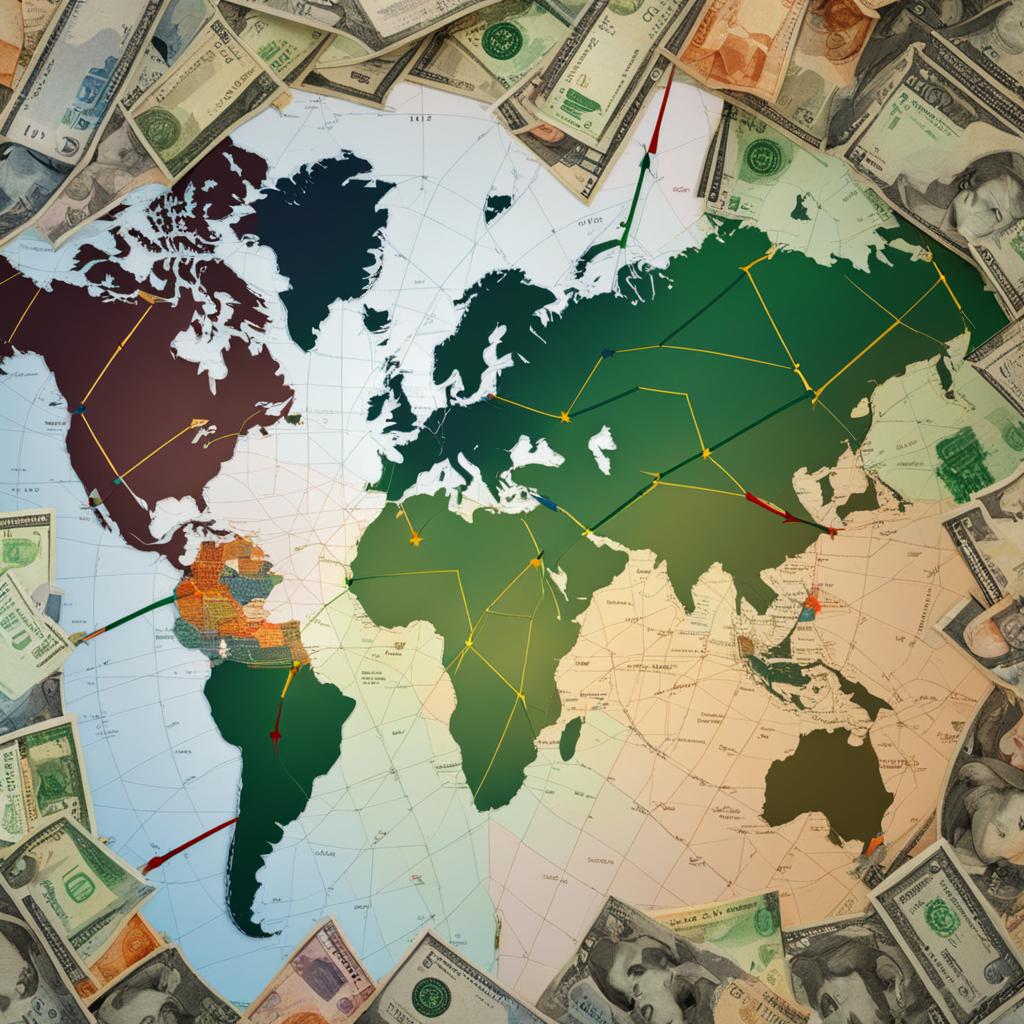Welcome to our guide on exchange rates! As a global business, understanding how exchange rates work and their impact is crucial for your success. Exchange rates refer to the value of one country’s currency relative to another’s. This rate is constantly changing due to a variety of factors, including supply and demand, economic indicators, and government policies.
As a result, changes in exchange rates can have a significant impact on global businesses. These fluctuations can affect import and export costs, profitability, competitiveness, and overall financial performance. It is essential to stay informed about exchange rate developments and have strategies in place to manage risks and maximize opportunities.
Throughout this guide, we will provide an overview of exchange rates, explain how they work, explore their impact on global businesses, and offer practical advice on managing exchange rate risks. Let’s get started!
How Exchange Rates Work
Exchange rates are the value of one currency compared to another. They are determined by a complex interplay of economic, political, and social factors. Understanding how exchange rates work is crucial for global businesses, as these rates have a significant impact on international trade and investment.
The exchange rate between two currencies is influenced by a variety of factors, including the supply and demand for each currency, the economic performance of each country, and political events such as elections or changes in government policies. Central banks also play a significant role in determining exchange rates, as they can use policies such as interest rate adjustments to influence the value of their country’s currency.
It is important to note that exchange rates are constantly fluctuating, often in response to changes in global economic conditions or geopolitical events. These fluctuations can have a significant impact on businesses engaged in international trade or investment.
The Role of Central Banks
Central banks play a critical role in determining exchange rates. They are responsible for setting the monetary policy of their respective countries, which can influence the value of their currency on the global market.
One of the primary tools used by central banks to influence exchange rates is interest rates. When a central bank raises interest rates, it increases the value of its currency, as investors are attracted to higher returns. Conversely, when a central bank lowers interest rates, it decreases the value of its currency, as investors are less incentivized to hold onto it.
Central banks can also engage in currency interventions, where they buy or sell large amounts of their currency on the foreign exchange market in an attempt to influence its value. This can be a controversial practice, as it can be seen as a form of economic manipulation or protectionism.
Supply and Demand
The supply and demand for a currency also have a significant impact on its exchange rate. When demand for a currency is high, its value increases, and when demand is low, its value decreases. The same is true of supply – when there is an excess supply of a currency on the market, its value decreases, and when there is a shortage, its value increases.
The supply and demand for a currency are influenced by a variety of factors, including trade flows, investment flows, and political and economic stability. For example, if a country has a trade surplus (i.e., it exports more than it imports), there will be a high demand for its currency as foreign buyers need to purchase the currency to pay for the goods. On the other hand, if a country has a trade deficit (i.e., it imports more than it exports), there will be a low demand for its currency.
Economic Indicators
Economic indicators, such as GDP, inflation, and employment rates, also play a role in determining exchange rates. When a country’s economy is performing well, its currency is generally seen as more valuable, as there is greater confidence in its stability and growth potential. Conversely, when a country’s economy is struggling, its currency is seen as less valuable. Economic indicators can also be used to predict future changes in exchange rates, allowing businesses to better anticipate and manage potential risks.
“Exchange rates are determined by a complex interplay of economic, political, and social factors.”
Overall, understanding how exchange rates work is crucial for global businesses. By taking into account the factors that influence exchange rates, businesses can better anticipate and react to changes in the global market. They can also use strategies such as hedging or currency diversification to manage exchange rate risks and maximize opportunities for growth and profitability.
The Impact of Exchange Rates on Global Businesses
Exchange rates can have a significant impact on the financial performance of global businesses. Fluctuations in exchange rates can affect import and export costs, profitability, competitiveness, and overall financial stability.
Import and export costs
When a business imports goods from another country, it needs to pay for those goods in the currency of that country. Exchange rate fluctuations can make those imported goods more or less expensive, affecting the overall cost of production. Similarly, when a business exports goods to another country, the amount it receives in payment will be in the currency of that country. If that currency has weakened against the currency of the business’s home country, the revenue received will be less than anticipated. This can impact the business’s profitability and cash flow.
Competitiveness
Exchange rate fluctuations can also impact a business’s competitiveness in the global market. If a business’s home currency appreciates against the currencies of its competitors, its products may become more expensive for international buyers, making them less competitive. Alternatively, if a business’s home currency depreciates against the currencies of its competitors, its products may become cheaper, making them more attractive to international buyers.
Overall financial performance
Exchange rate fluctuations can impact a business’s overall financial performance, including its revenue, profits, and cash flow. If a business operates in multiple countries, it may be exposed to currency risk, which can affect its financial stability. For example, if a business holds assets in a foreign currency that depreciates, the value of its assets will decrease, affecting its balance sheet and potentially impacting its ability to secure financing.
Therefore, it is crucial for global businesses to have a comprehensive understanding of exchange rates and their potential impact. By staying informed about exchange rate developments, businesses can minimize risks and capitalize on opportunities in the global market.

The Importance of Understanding Exchange Rates for Global Businesses
As we have discussed, exchange rates play a critical role in the success of global businesses. It is essential to stay informed about exchange rate developments and understand their impact on your financial performance. By doing so, you can identify risks and opportunities and take appropriate measures to manage them.
Managing exchange rate risks is not a one-size-fits-all process. Each business has its unique characteristics and challenges, and its response to exchange rate fluctuations should reflect that. However, there are some general strategies and tools that businesses can use to mitigate exchange rate risks:
Diversify your Currency Exposure
If you operate in multiple countries, consider diversifying your currency exposure by holding different currencies. This can help reduce the risk of losses due to fluctuations in a single currency.
Hedge your Foreign Exchange Risk
Hedging involves using financial instruments to protect your business from adverse exchange rate movements. Forward contracts, options, and futures contracts are some of the common hedging tools used by businesses.
Monitor Your Exchange Rate Exposure
Regularly reviewing your exposure to exchange rate risks and monitoring the impact of currency fluctuations on your financial performance is critical. This can help you identify areas where you need to take actions and adjust your strategies accordingly.
At the end of the day, understanding exchange rates is an ongoing process that requires diligence and effort. However, the rewards of being able to navigate the complexities of the global market and reap its benefits can be significant. We encourage all global businesses to stay informed, seek professional guidance, and take proactive steps to manage their exchange rate risks.




